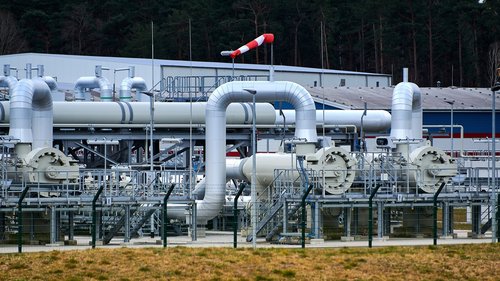Comments on the Public consultation

Building a Capital Markets Union

Comments on the Public consultation
- Beyond the five priority areas identified for short-term action, what other areas should be prioritized?
- What further steps around the availability and standardization of SME credit information could support a deeper market and start-up finance and a wider investor base?
- What support can be given to ELTIFs to encourage their take up?
- Is any action by the EU needed to support the development of private placement markets other than supporting market-led efforts to agree common standards?
- What further measures could help to increase access to funding and channeling of funds to those who need them?
- Should measures be taken to promote greater liquidity in corporate bond markets, such as standardization? If so, which measures are needed and can these be achieved by the market, or is regulatory action required?
- Is any action by the EU needed to facilitate the development of standardized, transparent and accountable ESG (Environment, Social and Governance) investment, including green bonds, other than supporting the development of guidelines by the market?
- Is there a value in developing a common EU level accounting standard for small and medium-sized companies listed on Multilateral Trading Facilities? Should such a standard become a feature of SME Growth Markets? If so, under which conditions?
- Are there barriers to the development of appropriately regulated crowdfunding or peer-to-peer platforms including on a cross border basis? If so, how should they be addressed?
- What policy measures could incentivize institutional investors to raise and invest large amounts and in a broader range of assets, in particular long-term projects, SMEs and innovative high growth startups?
- What steps could be taken to reduce the costs to fund managers of setting up and marketing funds across the EU? What barriers are there to funds benefitting from economies of scale?
- Should work on the tailored treatment of infrastructure investments target certain clearly identifiable sub-classes?
- If so, which of these should the Commission prioritize in future reviews of the prudential rules such as CRD IV/CRR and Solvency II?
- Would the introduction of a standardized product, or removing the existing obstacles to cross-border access, strengthen the single market in pension provision?
- Would changes in the EuVECA and EuSEF Regulations make it easier for larger EU fund managers to run these types of funds?
- How can the EU further develop private equity and venture capital as an alternative source of finance for the economy?
- In particular, what measures could boost the scale of venture capital funds and enhance the exit opportunities for venture capital investors?
- Are there impediments to increasing both bank and non-bank direct lending safely to companies that need finance?
- How can cross border retail participation in UCITS be increased?
- How can the European Supervisory Agencies further contribute to ensuring consumer and investor protection?
- What policy measures could increase retail investment?
- What else could be done to empower and protect EU citizens accessing capital markets?
- Are there national best practices in the development of simple and transparent investment products for consumers which can be shared?
- Are there additional actions in the field of financial services regulation that could be taken to ensure that the EU is internationally competitive and an attractive place in which to invest?
- What measures can be taken to facilitate the access of EU firms to investors and capital markets in third countries?
- Are there mechanisms to improve the functioning and efficiency of markets not covered in this paper, particularly in the areas of equity and bond market functioning and liquidity?
- In your view, are there areas where the single rulebook remains insufficiently developed?
- Do you think that the powers of the European Supervisory Agencies to ensure consistent supervision are sufficient? What additional measures relating to EU level supervision would materially contribute to developing Capital Markets Union?
- Taking into account past experience, are there targeted changes to securities ownership rules that could contribute to more integrated capital markets within the EU?
- What measures could be taken to improve the cross-border flow of collateral?
- Should work be undertaken to improve the legal enforceability and close-out netting arrangements cross-border?
- What are the main obstacles to integrated capital markets arising from company law, including corporate governance? Are there targeted measures which could contribute overcoming them?
- What specific aspects of insolvency laws would need to be harmonized in order to support the emergence of a pan-European capital market?
- What barriers are there around taxation that should be looked at as a matter of priority to contribute to more integrated capital markets within the EU and a more robust funding structure at company level and through which instruments?
- How can the EU best support the development by the market of new technologies and business models, to the benefit of integrated and efficient capital markets?
- Are there other issues, not identified in this Green Paper, which in your view require action to achieve a Capital Markets Union? If so, what are they and what form could such action take?
More on the topic

The Energy Dependence of Bank Loans
Russia's war against Ukraine has highlighted the vulnerability of the Federal Republic of Germany to Russian energy imports, especially natural gas.
IW
This time is different but still risky: Banking crisis instead of financial crisis
The current crisis of some American and European banks inevitably triggers fears that an international banking crisis could lead to a new financial crisis. But things in 2023 are very different from those in 2007.
IW